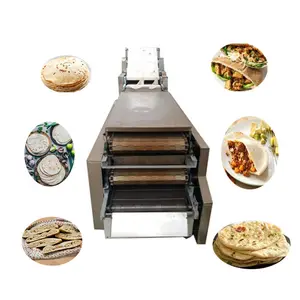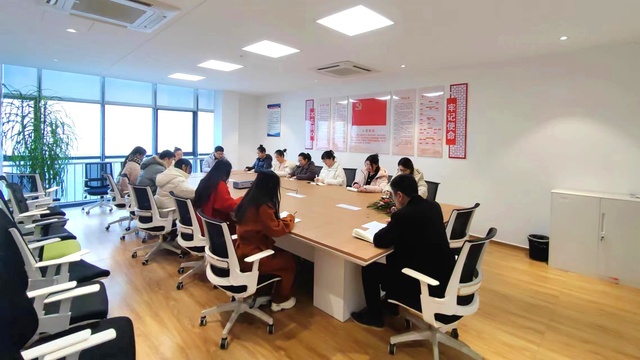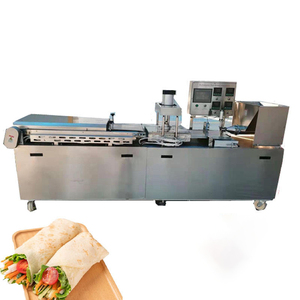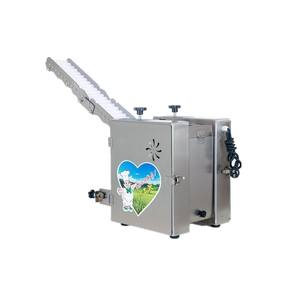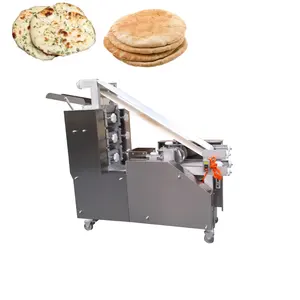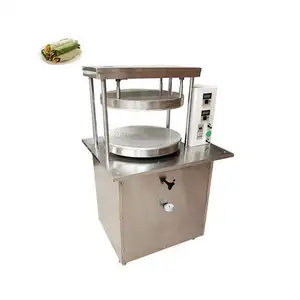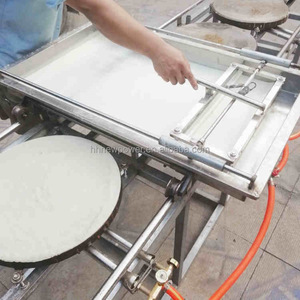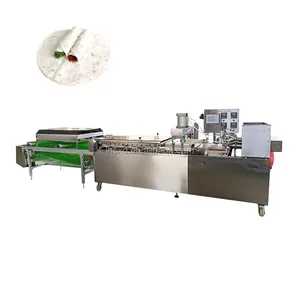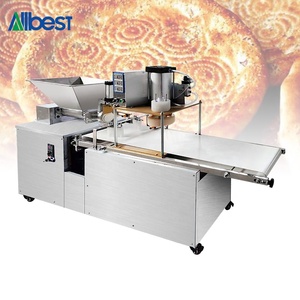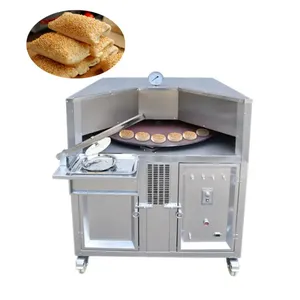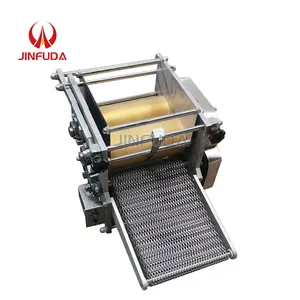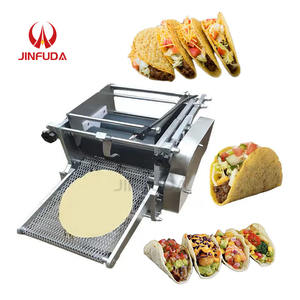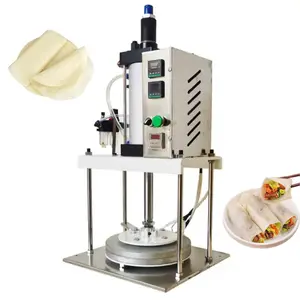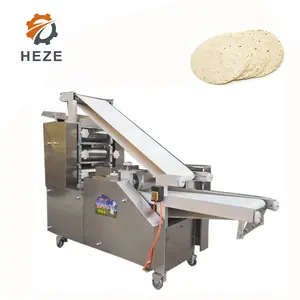Roti Making Machine For Home








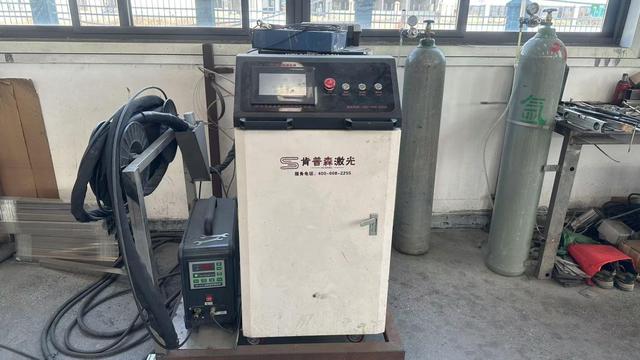







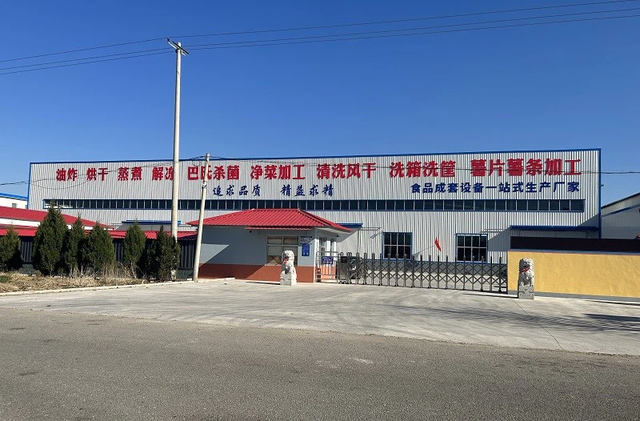























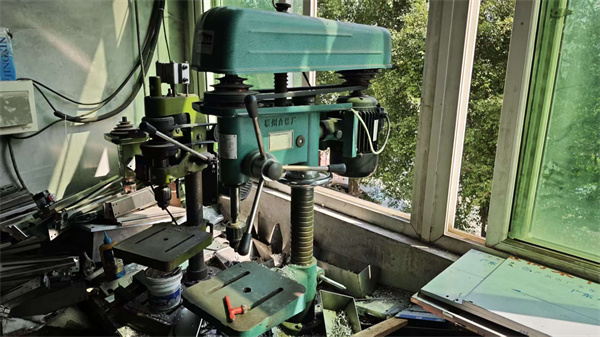





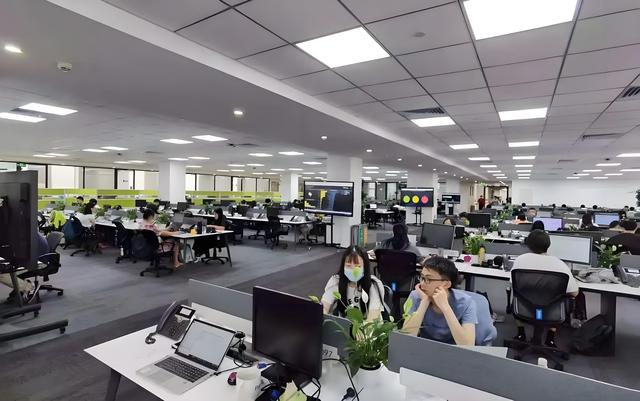






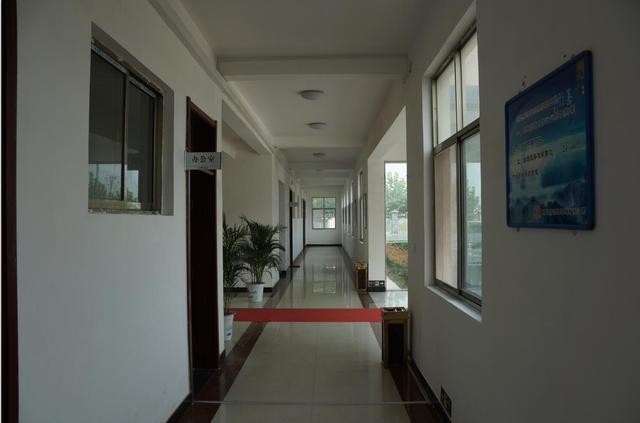



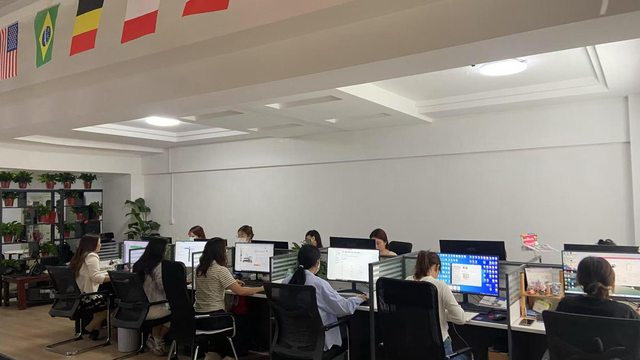


About roti making machine for home
Where to Find Roti Making Machine Suppliers for Home Use?
China remains a dominant force in the manufacturing of home-use roti making machines, with key supplier clusters located in Henan, Hebei, and Henan provinces. These regions host vertically integrated production ecosystems that combine mechanical engineering expertise with food-grade material processing capabilities. Zhengzhou and Jiaozuo in Henan province are emerging as hubs for automated kitchen appliance manufacturing, supported by access to stainless steel, aluminum die-casting, and precision motor component suppliers within 50km radii.
The industrial clusters enable economies of scale, reducing component procurement costs by 15–25% compared to non-specialized regions. Manufacturers benefit from shared technical labor pools and streamlined logistics, allowing lead times averaging 20–35 days for standard orders. The proximity of R&D centers, CNC fabrication units, and packaging facilities supports rapid prototyping and customization, particularly for compact, fully automatic models targeting residential kitchens.
How to Choose Roti Making Machine Suppliers for Home Applications?
Selecting reliable suppliers requires adherence to structured evaluation protocols focused on technical capability, quality assurance, and transactional reliability.
Technical and Quality Compliance
Verify that suppliers adhere to international electrical safety standards such as CE, RoHS, and IEC 60335 for household appliances. While ISO 9001 certification is not universally present among listed suppliers, those with documented quality management systems demonstrate higher on-time delivery performance. Confirm compliance through product test reports, particularly for heating element insulation, motor durability, and non-stick surface materials.
Production and Customization Capacity
Assess manufacturing infrastructure based on the following indicators:
- Minimum factory area exceeding 2,000m² to support dedicated assembly lines
- In-house design capabilities for mold development and thickness calibration (typically 1.5–3mm)
- Customization options including diameter (15–40cm), power rating (800–1500W), cable length, color, and logo imprinting
- Material control over critical components: food-grade aluminum plates, PTFE-coated surfaces, and copper-wound motors
Cross-reference customization claims with actual product listings and available configuration ranges. Suppliers offering multi-parameter adjustments (size, thickness, speed) typically maintain modular production architectures suitable for low-volume OEM requests.
Transaction and Sourcing Safeguards
Prioritize suppliers with verifiable response times under 2 hours and on-time delivery rates above 97%. Utilize secure payment mechanisms such as escrow services to mitigate risk during initial transactions. Request physical or digital samples to evaluate build quality, heating consistency, and operational noise before bulk ordering. Analyze reorder rates—those below 15% may indicate customer satisfaction challenges or market competitiveness issues.
What Are the Leading Roti Making Machine Suppliers for Home Use?
| Company Name | Location | Online Revenue | On-Time Delivery | Avg. Response | Reorder Rate | Price Range (USD) | Customization Options | Main Product Focus |
|---|---|---|---|---|---|---|---|---|
| Jiaozuo Taoding Trading Co., Ltd. | Henan, CN | US $550,000+ | 97% | ≤2h | <15% | $550–2,450 | Motor, wheels, color, shape, thickness, mold, weight, cable, size, logo, speed | Roti & bread equipment |
| Luohe Langrui Electromechanical Equipment Co., Ltd. | Henan, CN | US $420,000+ | 99% | ≤2h | <15% | $640–8,100 | Color, diameter, material, shape, size, thickness, logo, packaging, graphic | Automated flour & tortilla machinery |
| Hebei Strongsen Technology Co., Ltd. | Hebei, CN | US $60,000+ | 94% | ≤2h | 25% | $666–1,538 | Color, material, size, logo, mold, weight, packaging, power, dimensions | Commercial & manual tortilla systems |
| Zhengzhou Younker Import & Export Co., Ltd. | Henan, CN | US $30,000+ | 100% | ≤1h | <15% | $720–8,997 | Limited customization; broad snack machine portfolio | Grain product & bread machines |
| Sumec Industrial INC | Unknown | Data unavailable | Not reported | ≤1h | Not reported | $550–1,100 | Basic model variations | Grain product machines (1,156 listings) |
Performance Analysis
Jiaozuo Taoding and Luohe Langrui demonstrate strong export performance with high on-time delivery rates (97–99%) and extensive customization capabilities, positioning them as preferred partners for branded or region-specific designs. Zhengzhou Younker stands out with a perfect 100% on-time delivery record and sub-1-hour response time, indicating robust internal coordination despite lower reported revenue volume. Hebei Strongsen’s 25% reorder rate suggests moderate customer retention, potentially linked to mid-tier pricing and less aggressive after-sales engagement. Sumec Industrial INC offers price-competitive models but lacks transparency in delivery metrics and revenue history, increasing procurement risk for first-time buyers.
FAQs
What are typical MOQs and pricing for home roti making machines?
Most suppliers list a minimum order quantity of 1 set, facilitating sample acquisition and small-scale testing. Unit prices range from $550 for basic automatic models to over $8,000 for large-format or multifunctional units. Bulk pricing is typically negotiated separately based on order volume and customization depth.
How long do production and shipping take?
Manufacturing lead time averages 20–30 days for standard configurations. Add 10–25 days for air or sea freight depending on destination. Expedited production may reduce timelines by 5–10 days at additional cost.
Can suppliers customize voltage and plug types?
Yes, reputable manufacturers offer dual-voltage options (110V/220V) and regional plug adaptations (e.g., US, EU, UK, AU). Confirm electrical compliance with local regulatory bodies prior to shipment.
Do suppliers provide product certifications?
Certification availability varies. Buyers must explicitly request CE, RoHS, or ETL documentation. Independent third-party testing is recommended to validate safety and performance claims, especially for direct-to-consumer sales.
What is the sampling process for roti making machines?
Sample orders are generally accepted at full unit price. Production takes 10–18 days, with air freight adding 5–10 days. Some suppliers apply sample fees toward larger subsequent orders, subject to negotiation.




